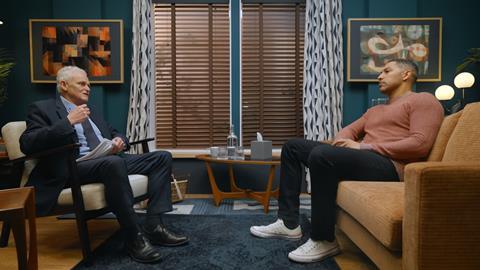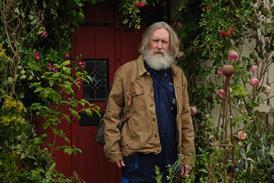“Having never been in therapy, I found it interesting to learn what goes on, and I think it might encourage those who are considering it to take the plunge”

“Done well – and I think it is – a series like this could conceivably help people who assume therapy isn’t for them. But it doesn’t tackle the fact that therapy is financially out of reach for so many or that NHS-provision is woefully insufficient and can only be accessed after years on a waiting list. Still, Change Your Mind, Change Your Life succeeds in demonstrating that the stories we tell ourselves might be covering a very different narrative underneath – you think your problems are down to one thing, but when you probe deeper something else may be the cause. And the overwhelmingly positive take away is summed up best by O’Kane: “You’re not stuck with the brain that you’ve got.””
Julia Raeside, The i
“Having never been in therapy, I found it interesting to learn what goes on, and I think it might encourage those who are considering it to take the plunge. More information could have helped, though. The professionals here were a psychotherapist, a psychiatrist and a clinical psychologist. What’s the difference? Which one should you see for your particular problem? And it took only two sessions for these clients to have their lives changed, which seemed a suspiciously quick fix.”
Anita Singh, Telegraph
“The first two episodes of this dire series were dumped in a double bill close to midnight. But it’s worse than rubbish — it’s dangerous. Viewers suffering from grief, anxiety or the trauma of being bullied are effectively being told that they can’t get better on their own. They have to open their wallets and get therapy.”
Christopher Stevens, Daily Mail
“Another day, another addition to the “point and gasp” school of true crime documentaries; one which adds nothing to our understanding of a terrible crime or of those who committed it, nothing to our safety as individuals or as a society, nothing except our appetite for voyeurism and the normalisation of it. Most true crime documentaries are in this school. Fred & Rose West: A British Horror Story is no exception.”
Lucy Mangan, The Guardian
“There are two ways to watch Fred and Rose West: a British Horror Story (Netflix). It works as a fairly standard true crime documentary series (although only in the way once-startling depravity is now fairly standard fare in true crime). But it also functions as an inadvertent enquiry into how true crime is made and sold. For British viewers over the age of 40 or so, the second part will be the most interesting.”
Benji Wilson, Telegraph
“Much like Jimmy Savile: A British Horror Story before it, this is a well-made series, mindful to avoid seeming overtly sensationalist, although it doesn’t attempt to include any cod psychology to explain Fred West’s psychopathy, nor does it explore his childhood. Rose West, it is suggested, was abused as a child before she fell into Fred’s sadistic control from the age of 15. Instead, prominence is given to family members of the victims to talk movingly, with calm dignity, of how they found out the unspeakable fate of their loved ones, or their dismay when Fred West hanged himself — the “chicken’s way out” as one relative put it.”
James Jackson, The Times





























No comments yet